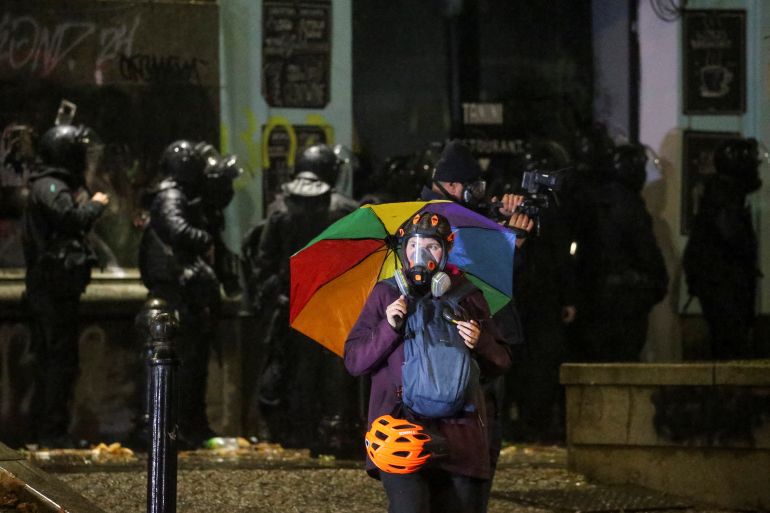Georgian opposition leader Zurab Japaridze arrested as pro-EU protest rages
The police action comes as protesters refuse to back down over the government delaying talks about joining the EU.
Georgian police ended the standoff with protesters by moving demonstrators away from the parliament building as protest rages for the fourth night [Irakli Gedenidze/Reuters]Published On 2 Dec 20242 Dec 2024
Georgian police have arrested prominent opposition leader Zurab Japaridze after using water cannon and tear gas to disperse tens of thousands of antigovernment protesters who refused to back down over the government delaying talks on joining the European Union.
Japaridze’s arrest on Monday comes as Prime Minister Irakli Kobakhidze accused the opposition of “coordinated violence” aimed at overthrowing the constitutional order.
The Coalition for Change, the country’s largest opposition party, confirmed Japaridze’s arrest early in a post on X.
“Japaridze was fleeing together with other protesters as he was grabbed, indicating this was a conscious, targeted move by the regime,” the statement said.
Footage showed Japaridze being placed in an unmarked vehicle by masked police early on Monday. It was unclear if he would be charged with any offence.
The ongoing protests in Georgia were prompted by the government’s announcement last week that it was suspending talks on joining the EU.
Critics saw that as confirmation of a Russian-influenced shift away from pro-Western policies, something the ruling party denies.
Advertisement
The United States and the EU have voiced alarm at what they see as democratic backsliding by Georgia, a country of 3.7 million people that lies at the intersection of Europe and Asia and was once part of the Soviet Union.
Georgian opposition supporters hold Georgian flags during the fourth night of protests in front of the parliament building in Tbilisi [David Mdzinarishvili/EPA]
Russia denies interfering in its neighbour’s affairs, but former President Dmitry Medvedev warned on Sunday that Georgia was “moving rapidly along the Ukrainian path, into the dark abyss”.
“Usually this sort of thing ends very badly,” he added.
On Sunday night, protesters gathered again in Tbilisi on the central Rustaveli Avenue for the fourth night. Some tossed fireworks at police, who responded with volleys of water cannon and tear gas.
Police eventually ended the standoff by moving demonstrators away from the parliament building.
Georgia’s Ministry of Internal Affairs said 21 police officers had been injured during the overnight protest, with 113 hurt since the beginning of the unrest.
Dozens of protesters have also been injured since the latest demonstrations began, and the US has condemned what it called the excessive use of police force.
President Salome Zourabichvili, a pro-EU figure who backs the protesters, said many of those arrested had suffered head and face injuries as a result of beatings.
“This is the revolt of an entire country,” she told French news group France Inter.
Hundreds of diplomats and civil servants have signed open letters protesting the decision to suspend talks with the EU and stop receiving any funds from the bloc for four years. At least four Georgian ambassadors have resigned.
Advertisement
Zourabichvili has called for pressure to be brought on the Constitutional Court to annul elections won by the ruling party, Georgian Dream, in October. Both the opposition and Zourabichvili say the poll was rigged.
Kobakhidze, the prime minister, has rejected their call for new elections.
Tension in Georgia has been building for months as the ruling party has passed laws on “foreign agents” and on curbing LGBTQ rights.
Georgian Dream says it is acting to defend the country’s sovereignty against outside interference and prevent the West from dragging it into a war with Russia.
